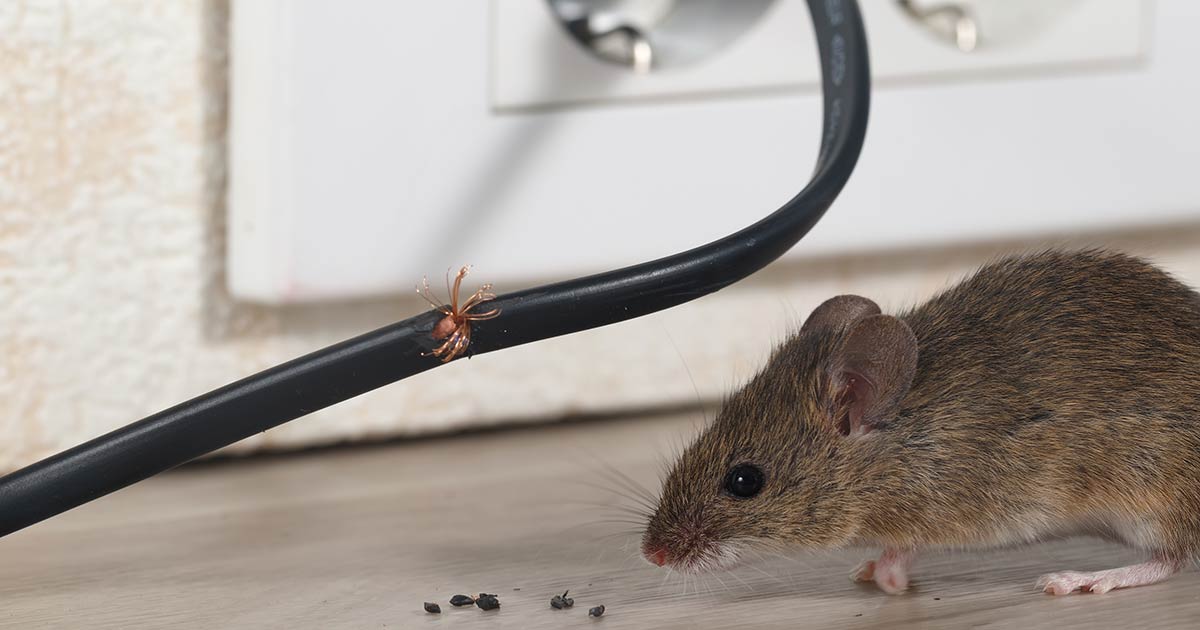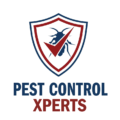Rodent Removal in The Villages, Florida, Pest Control Xperts
Hearing scratching noises in your attic or finding droppings in your pantry can instantly turn a peaceful home into a source of anxiety. In The Villages and Lady Lake, rodents are a significant concern for homeowners, especially as the seasons change or when seasonal residents return to open up their homes. Pest Control Xperts provides specialized rodent removal, mice extermination, and rat control services designed to protect your property and your health. We understand the specific vulnerabilities of local housing, from the roof vents of Designer Homes to the garage seals of Courtyard Villas. Our local team focuses on identifying how these pests are getting in and stopping them for good using safe pest management practices.
Rodent Problems We Solve in The Villages
Rodents in Central Florida are more than just a nuisance; they are a threat to your property’s safety. Rats and mice must chew constantly to keep their teeth sharp, which means they often target electrical wiring, PVC piping, and ductwork. This behavior can lead to water leaks, A/C failure, or even fire hazards. Additionally, rodents carry diseases and contaminate insulation with urine and feces.
We do not believe in simply setting a few traps and hoping for the best. Effective rodent removal requires a strategic approach that addresses the entire infestation. We use pest tracking to determine their travel paths and nesting sites. By understanding the behavior of the specific rodent—whether it is a climbing Roof Rat or a scavenging House Mouse—we can implement a plan that ensures elimination of pests and restores hygiene to your home.
Common signs of a rodent issue:
- Scratching or scurrying sounds in the ceiling or walls at night
- Small, dark droppings found in cupboards, drawers, or the garage
- Chewed holes in food packaging, plastic bins, or pet food bags
- Nesting material like shredded paper, fabric, or insulation
- Grease marks or “rub stains” along baseboards where rodents travel
- A strong, ammonia-like odor in enclosed spaces
- Pets acting agitated or staring at a specific spot on the wall
- Fruit in your garden that has been hollowed out or gnawed on

Types of Rodent Issues We Handle
Roof Rat infestations in attics and soffits
The Roof Rat is the most common rodent pest in The Villages. These agile climbers use palm trees, power lines, and fences to access your roof. Once there, they squeeze through vents, soffit returns, or gaps in the eaves to nest in your insulation. They are notorious for chewing on wires and A/C ducting. Because they live high up, homeowners often hear them running overhead but rarely see them on the floor. Our strategy focuses heavily on exclusion techniques for pests at the roofline.
What we look for during inspection:
- Tree limbs touching or hanging over the roof
- Damaged screens on roof vents or ridges
- Gnaw marks on eaves or soffit panels
- Burrowed tunnels in attic insulation
House Mice in kitchens and pantries
While smaller than rats, House Mice reproduce incredibly fast. A single pair can produce dozens of offspring in a year. They typically enter near the ground level through weep holes, gaps under doors, or around utility pipes. Once inside, they nest behind appliances or in the back of cabinets, contaminating food surfaces with bacteria like Salmonella. Mice extermination requires locating these hidden nests and using tamper-resistant baiting systems to clear the population.
What we look for during inspection:
- Gaps around dishwasher or stove connections
- Droppings behind the refrigerator or in the silverware drawer
- Openings around plumbing under the kitchen sink
- Food debris accumulating behind appliances
Rodent activity in garages and lanais
Garages and lanais often serve as the entry point for rodents. In The Villages, where many residents store cars, golf carts, and holiday decorations in the garage, mice and rats find ample shelter. They often nest in car engines or storage bins. From the garage, they can easily chew through the drywall to enter the main house. We provide pest proofing for these transitional spaces to create a secure perimeter.
What we look for during inspection:
- Worn weather stripping on the bottom of the garage door
- Nests inside golf cart compartments or car engines
- Chewed corners on cardboard storage boxes
- Gaps where the A/C line set enters the home

Our Rodent Inspection and Treatment Approach
Successful rodent control starts with a comprehensive pest assessment. We inspect the exterior of your home from the foundation to the roof ridge. We look for “conducive conditions” such as dense landscaping or unsealed utility penetrations that invite rodents in. Inside, we check attics, crawlspaces (if present), and utility closets to gauge the severity of the infestation.
Our treatment plan is two-fold: removal and exclusion. We use integrated pest management to select the best method for removing the current population. This may involve trapping to ensure we remove the carcasses, avoiding the odor of rodents dying in inaccessible walls. Simultaneously, we implement rodent barrier installation. We seal the entry points using durable materials like steel wool, hardware cloth, and concrete that rodents cannot chew through. This step, known as pest proofing, is vital for long term pest control. Without exclusion, new rodents will simply follow the scent trails of the old ones and re-infest your home.

Rodent Prevention and Pest Proofing Tips for The Villages Homes
Prevention is the most effective way to keep your home rodent-free. In our area, fruit trees and dense shrubbery provide an endless food source for rats, drawing them close to your home. Property pest management involves managing these attractants and hardening your home’s defenses. Our team provides customized advice to help you protect your investment.
Preventative steps that actually help:
- Trim tree branches back at least 6 feet from the roof to stop jumpers
- Seal all holes larger than a dime with steel wool or caulk
- Pick up fallen citrus or fruit from the yard daily
- Do not leave pet food or water bowls outside overnight
- Store bird seed and dry goods in metal or heavy plastic containers
- Ensure your garage door closes tightly with no gaps at the corners
- Keep palm trees trimmed to reduce nesting spots in the skirts
- Install covers on pool heater vents and dryer vents
- Clean up clutter in the garage to reduce hiding spots
We can also assist with installing specific pest deterrent strategies to make your yard less inviting.
Residential and Commercial Rodent Control
We provide residential pest control services that prioritize the safety of your family and pets. We use tamper-resistant stations that keep baits and traps away from curious paws and fingers. We understand the distress of having a rodent in your personal space and work efficiently to resolve the issue with minimal disruption.
For our commercial clients in Lady Lake and The Villages, such as restaurants, retail stores, and warehouses, commercial pest services are essential for compliance and reputation. A rodent sighting can lead to immediate closure by health inspectors. We offer professional rodent exterminators who understand the specific needs of commercial facilities. We provide detailed documentation, pest sanitation services, and discreet monitoring to ensure your business remains compliant and pest-free.
Professional Rodent Extermination vs DIY Methods
Many homeowners attempt to handle rodents with store-bought traps or poison blocks. While this might catch a mouse or two, it rarely solves the infestation. DIY traps are often placed in the wrong locations, and rodents are neophobic, meaning they avoid new objects. Furthermore, using poison without a plan can lead to rodents dying inside your walls, creating a terrible odor and a secondary fly problem.
Professional pest control offers a strategic advantage. We know where to place traps for maximum effectiveness based on rodent behavior. More importantly, we have the skills and materials to perform proper exclusion techniques for pests. Sealing a home against rodents requires detailed work; missing a single quarter-inch gap can result in failure. Our team ensures that the entire envelope of your home is secure. We also prioritize safe use of products, ensuring that any control measures used do not pose a risk to non-target wildlife or your pets.
Frequently Asked Questions About Rodent Control
How do I know if I have mice or rats?
The size of the droppings is the easiest indicator. Mouse droppings are small, like rice grains. Rat droppings are larger, about the size of an olive pit or a raisin. Also, rats tend to be heard in attics (scratching/thumping), while mice are often found behind kitchen appliances.
How do you get rodents out of the attic?
We typically use trapping methods to remove the rodents currently in the attic. Crucially, we must identify and seal the entry points first or simultaneously. If we do not seal the holes, new rodents will simply move in to replace the ones we remove.
Is the bait safe for my dog or cat?
Safety is our top priority. We use tamper-resistant bait stations that are designed to prevent pets and children from accessing the product inside. We place these stations in strategic locations and will discuss all safety precautions with you before starting service.
How long does it take to get rid of them?
It depends on the size of the infestation. Trapping programs can take anywhere from a few days to a couple of weeks to ensure all rodents are caught. However, the exclusion work (sealing the home) provides immediate protection against new entries.
Rodent removal in The Villages and nearby areas?
Yes, we provide comprehensive rodent control services to The Villages, Lady Lake, Wildwood, and the surrounding areas. We are experienced with the specific rodent pressures found in our local communities.
Why do I hear scratching but don’t see any droppings?
Roof rats often live entirely in the attic and soffits, rarely coming down into the living space. They leave droppings in the insulation where you cannot see them. Scratching noises are often the first and only sign of a serious attic infestation.
Do you offer green pest control options for rodents?
Yes, our primary approach is exclusion (sealing the home) and trapping, which is a chemical-free extermination method. We focus on mechanical solutions first to solve the problem without relying heavily on rodenticides.
Is there a local mice exterminator near me?
Yes, Pest Control Xperts is your local specialist in Lady Lake and The Villages. We can respond quickly to inspect your home and start the removal process.
Service Area for Rodent Removal in and Around The Villages, Florida
We are proud to serve the residents of Central Florida. Our technicians are familiar with the neighborhoods of The Villages, from the northern historic side to the expanding southern areas. We also serve the surrounding towns, understanding the unique mix of urban and rural pest pressures. Local service means we understand your home and your needs.
- The Villages
- Lady Lake
- Fruitland Park
- Wildwood
- Oxford
- Summerfield
- Leesburg
- Weirsdale
We are dedicated to protecting homes and businesses in every zip code we cover.
Zip codes we serve: 32159, 32162, 32163
Conclusion
Rodents are a serious issue that requires a professional solution. Pest Control Xperts brings the expertise, tools, and local knowledge needed to evict these unwanted guests and keep them out. Whether you have mice in the kitchen or rats in the attic, our team in The Villages is ready to restore your home’s safety and hygiene. Do not let rodents damage your property.
Contact us today to schedule your comprehensive inspection.
